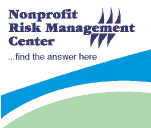 |
 |
|
|
|
February 28, 2007
Will Universal Access to the FBI Fingerprint Database Make Nonprofits Safer?
Earlier this month, John C. Patterson, senior program director at the Nonprofit Risk Management Center, attended a workshop sponsored by the U.S. Department of Justice titled “Expanding Access to Criminal History Information and Improving Criminal Record Backgrounding.” The underlying assumption fueling this movement is that expanding access to criminal history records will result in a safer society. Congress gave tacit acceptance to this assumption when it directed the attorney general to make recommendations for expanding access to criminal history record checks for non-criminal justice purposes in a section of the Intelligence Reform and Terrorism Prevention Act of 2004.
A number of critical issues were raised during the program. Some of the points that were made by panelists and participants at the workshop include:
- The biggest contributor to non-recidivism by an offender is employment. When criminal record checks are part of the selection process, barriers to employment are created. Will increased use of criminal history record checks result in higher recidivism rates for offenders?
- Very little research has been conducted to link poor job performance or threat to safety with criminal history records.
- Fingerprint-based record checks are the preferred method, but they are more expensive and more time consuming than name-based checks. At what point is the increased cost justified?
- Fingerprint-based checks are by their nature more intrusive than name-based checks. What should an informed consent include to insure that the privacy rights of the applicants are protected?
- Criminal history records may contain information that is irrelevant to the selection process or that is inaccurate. What standards need to be in place to insure that users of criminal history record checks receive complete information that is accurate and relevant to the position for which an applicant is being screened?
- Based on recidivism studies, at some point an offender’s propensity to re-offend is not significantly different from that of the general population. How long is an offense record relevant and are some offenses more likely to be repeated than others?
As you will be able to tell from the breadth of these unresolved issues, the use of criminal history records is far more complex than it may seem on the surface. To address these issues, the Department of Justice issued a report, “The Attorney General’s Report on Criminal History Background Checks.” These recommendations were submitted to Congress and they may be used as the basis for new legislation and regulations impacting the use of criminal records by nonprofit organizations. To provide input on the process, consider reading the report and sharing your views with your representatives and senators.
In the meantime, the Nonprofit Risk Management Center continues to guide nonprofits in the use of criminal history record checking as a valuable risk management tool when used as a part of a comprehensive screening process. For more information on the relationship between background checks and screening, refer to the
Staff Screening Notebook. Questions about this topic may also be addressed by contacting the Center at (703) 777-3504.
|
|
 |
March 7
Business Continuity Planning for Your Nonprofit
2-3 pm EST
When you’re up to your rear in alligators, it’s hard to remember that your mission was to drain the swamp. A business continuity strategy provides a “Plan B” for keeping the alligators at bay, while continuing to focus on the task at hand. BCP is a way to keep your doors open in the face of an interruption or emergency so that people know how to proceed when the norm is disrupted for any reason.
Register your nonprofit’s senior staff for this Webinar to:
- Learn how to put a plan together that will enable the timely restoration of critical services and programs.
- Get an overview of how to assess what’s already in place and organize it into a Plan B.
- Review sample outlines for a generic plan with subsections on specific disruptions.
$59.00
Register here
|
 |

|
 |
 |
|


